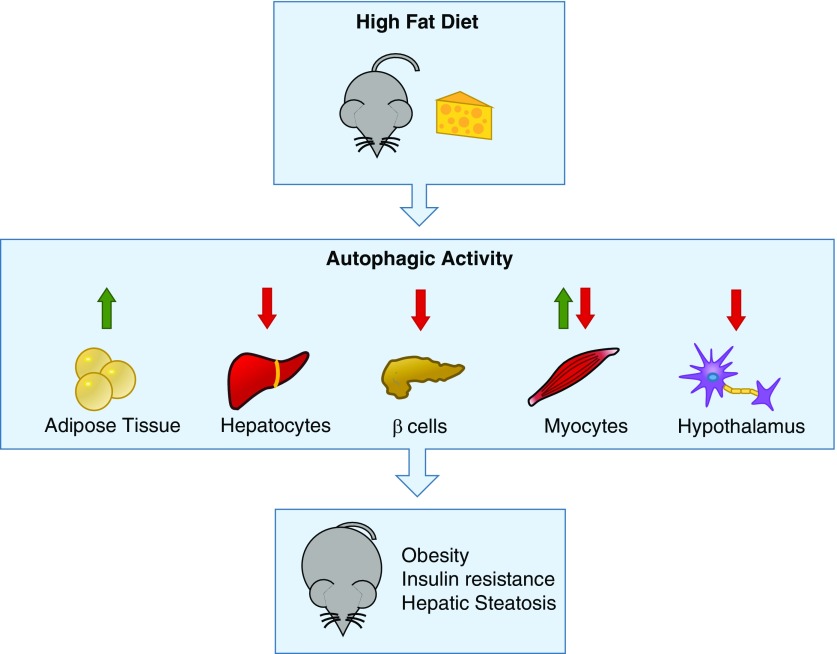Figure 3.
Tissue-specific regulation of autophagy under high-fat diet conditions. Under high-fat diet conditions, mice have tissue-specific changes in autophagy. In adipose tissue, there is an increase in autophagic activity as a response to endoplasmic reticulum stress, leading to degradation of the antiinflammatory adipokine adiponectin. In hepatocytes, β cells, and hypothalamic neurons, there is decreased autophagy under a high-fat diet, leading to lipid accumulation, β-cell toxicity, and inflammation. In myocytes under exercise, there is an increase in autophagy, leading to decreased insulin resistance. Thus, aberrant autophagy contributes to obesity disease pathogenesis, leading to insulin resistance, hepatic steatosis, and inflammation.

